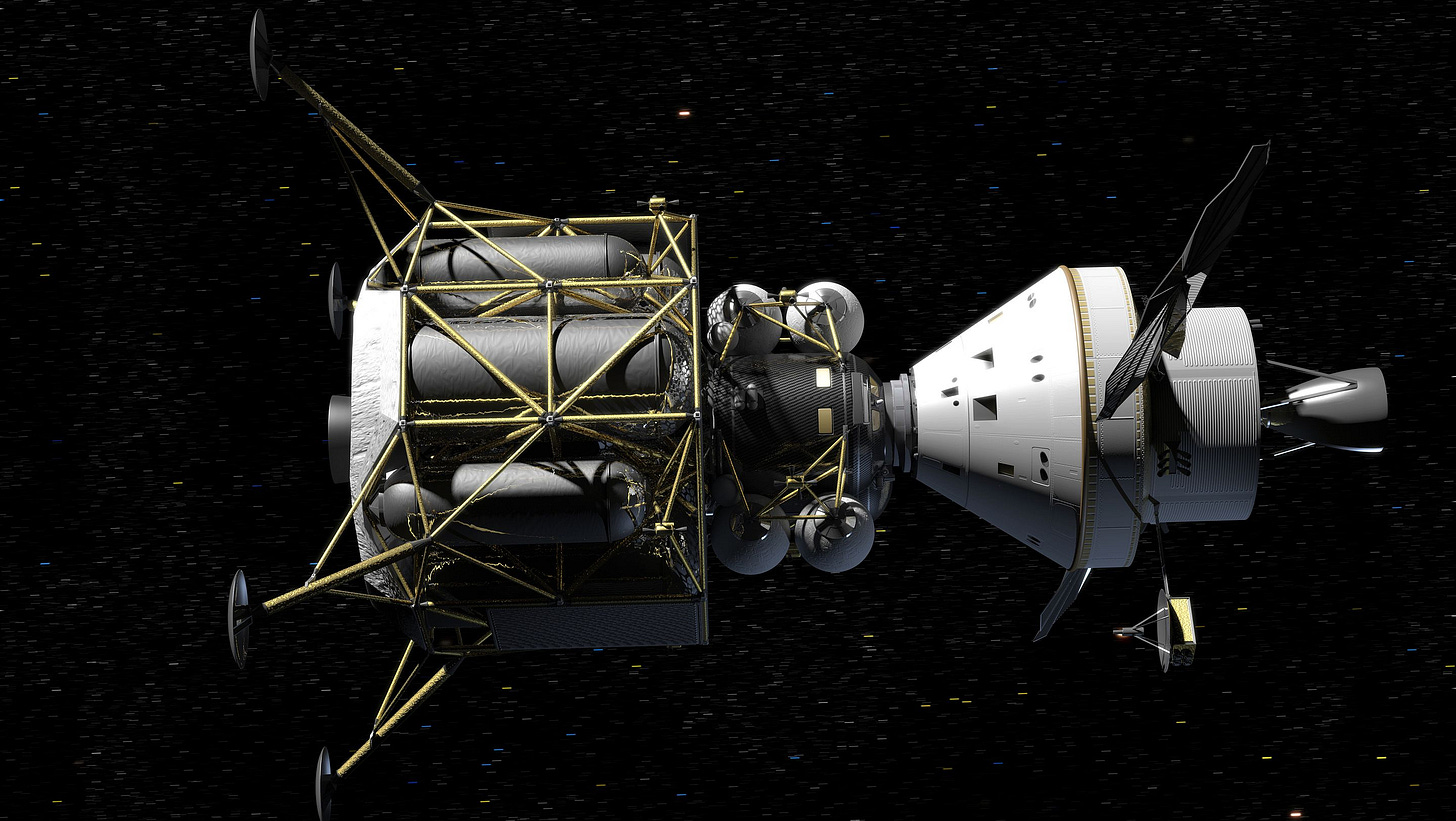NASA’s leadership changes with almost every new president, something like the tides shifting with the moon. This time, however, the shift might bring a tsunami.
On December 20, Donald Trump sent shockwaves through the space community by nominating Jared Isaacman - billionaire entrepreneur, a prominent figure in private spaceflight, and longtime ally of Elon Musk - to lead NASA. If confirmed, Isaacman wouldn’t just oversee the agency’s $25 billion budget—he’d hold the fate of America’s space program in his hands. And that has some people cheering, while others are bracing for impact.
Isaacman isn't your typical NASA administrator. He built Shift4 Payments into a financial empire, launched Draken International to train fighter pilots, and then in a bold leap, bought himself a ticket to space. But he didn’t stop at space tourism. He personally financed and commanded Inspiration4, the first all-private orbital mission, and now leads the Polaris Program—another privately funded series of missions with SpaceX.
His connections to Elon Musk run deep. Isaacman’s company invested $27.5 million in SpaceX stock and he has funneled millions into Musk’s space ventures. And now, as NASA’s potential new leader, he would be in charge of awarding contracts worth billions to—well—companies like SpaceX. Some call this an obvious conflict of interest.
In October 2024, Isaacman defended Musk on social media, urging people to look past Musk’s controversies and appreciate the work that SpaceX has done. Whether his stance has evolved since then remains unclear, but his close ties to Musk continue to raise eyebrows among sceptics.
Still, others see him as a disruptor—someone who could cut through NASA’s red tape and push the agency into a bold, commercially driven era. But that raises a serious question: What kind of NASA will emerge under his leadership?
At stake is not just NASA’s leadership but its entire trajectory. For decades, NASA’s approach to spaceflight has been slow, methodical, and—critics argue—burdened by bureaucracy. The Artemis program, designed to return humans to the Moon, is already years behind schedule and over budget. By 2025, its price tag is expected to reach $93 billion. By comparison, the entire Apollo program cost $28 billion, which, adjusted for inflation, it’s about $250 billion in today's dollars.

If Isaacman takes charge, Artemis could undergo a radical transformation from a cautious, government-led effort into a high-speed, privately-driven venture with SpaceX at its core. Musk’s “build, launch, break, fix, repeat” philosophy could soon become NASA’s new mantra.
What About Earth? The Future of NASA’s Climate Science
But NASA isn’t just about rockets and Mars. It’s also one of the most important organisations studying Earth’s climate. Since the 1980s, the agency has been at the forefront of monitoring global environmental changes. Its satellites track rising temperatures, disappearing ice caps, and shifting weather patterns—data that informs everything from disaster response to international climate policy.

Yet, Isaacman’s nomination has reignited fears that NASA’s Earth science programs could face new threats. Under the last Trump administration, NASA’s climate programs came under fire. Former NASA administrator Jim Bridenstine initially denied climate change and while eventually accepted the science, this didn’t stop Trump administration from trying to slash NASA’s Earth science funding, though Congress ultimately blocked those cuts.
“The National Climate Assessment that includes NASA and it includes the Department of Energy, and it includes NOAA (the National Oceanic and Atmospheric Administration), has clearly stated that it is extremely likely... that human activity is the dominant cause of global warming, and I have no reason to doubt the science that comes from that” __ Jim Bridenstine
Now, with Trump back in office and Isaacman’s likely alignment with a pro-commercial, exploration-first agenda, climate research funding could be at risk once again. Private companies like SpaceX or Planet Labs might be encouraged to take over climate monitoring—raising concerns about transparency and public access to data.
A New Era for NASA—But What Kind?
Isaacman’s own words offer insight into his vision. In an August, 30 2024 tweet, Isaacman wrote:
“We can explore the cosmos and build children's hospitals; we can advance our species and strive to cure childhood cancer; we can attempt to unlock the mysteries of the universe and improve the climate here at home. Those who see this as a binary choice, where resources must be allocated to one side or the other, are incredibly shortsighted.”
It’s a noble and idealistic sentiment. Balancing space ambition with Earth-bound responsibility has always been NASA’s tightrope act. But with Isaacman at the helm, this could change possibly redefining where priorities lie.
In his first statement post-nomination, Isaacman promised bold action:
"With the support of President Trump, I can promise you this: We will never again lose our ability to journey to the stars and never settle for second place. Americans will walk on the Moon and Mars, and in doing so, we will make life better here on Earth."
However, the term "better" can be interpreted in various ways, depending on individual perspectives. For some, it signifies technological advancements and economic growth spurred by space exploration. For others, it embodies the spirit of adventure and daring— "to go where no one has gone before."
While advancements in space exploration can bring many benefits, the idea of "better" in this context can also have negative consequences for both people and the planet.
Investing billions in space exploration can come at the expense of urgent issues on Earth, such as climate change, poverty, and healthcare. The space industry is largely controlled by a few nations and corporations. This could increase economic inequality rather than benefit the wider population.
There’s also the darker side of ambition—the militarisation of space. The U.S., China, and Russia are already investing in military applications for space, raising concerns about a new arms race. India is also rapidly advancing its space program through increased funding and strategic partnerships.
And then comes the ethical dilemma: who owns space? If private companies or powerful nations dominate Moon and Mars missions, there’s a real risk that space colonisation could echo the mistakes of Earth’s colonial past—benefiting the few at the expense of the many.
The U.S. Senate will soon decide Isaacman’s fate. One thing is certain: NASA is standing at a crossroads, and its next steps will chart the course—not just for space exploration—but for humanity’s future, both above and below the atmosphere.
This article is free to read, but if you found it useful, please consider subscribing or making a small donation at my Buy Me A Coffee page below. The Climate Historian is an independent publication, entirely supported by readers like you.
Notes:
‘Further and faster’: Why Trump’s NASA pick is sending shock waves through the space community https://edition.cnn.com/2024/12/06/science/nasa-chief-trump-pick-jared-isaacman/index.html
How much did the Apollo program cost? (n.d.). Retrieved from The Planetary Society: https://www.planetary.org/space-policy/cost-of-apollo
NASA's new chief changes mind, now believes in climate change -Phys.org
https://www.thetimes.com/world/us-world/article/jared-isaacman-nasa-administrator-trump-p8xsm83x9
‘Get those rocket ships going’: where will Trump’s space odyssey lead Nasa? | Space | The Guardian
Russia plans to spend almost a trillion rubles on space in 2025-2027 | Russian Space News
Putin rages as sanctions hobble Russia in the new space race














Share this post